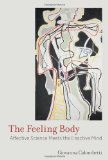December 28, 2013

The Spiritual Automaton: Spinoza’s Science of the Mind by Eugene Marshall (Oxford University Press, 2013)
(Hardcover – 2/15/14), (amazon.co.uk), (UK kindle ed.)
Book description from the publisher:
Eugene Marshall presents an original, systematic account of Spinoza’s philosophy of mind, in which the mind is presented as an affective mechanism, one that, when rational, behaves as a spiritual automaton. The central feature of the account is a novel concept of consciousness, one that identifies consciousness with affectivity, a property of an idea paradigmatically but not exhaustively instantiated by those modes of thought Spinoza calls affects. Inadequate and adequate ideas come to consciousness, and thus impact our well-being and establish or disturb our happiness, only insofar as they become affects and, thus, conscious. And ideas become affects by entering into appropriate causal relations with the other ideas that constitute a mind. Furthermore, the topic of consciousness in Spinoza provides an eminently well-placed point of entry into his system, because it flows directly out of his central metaphysical, epistemological, and psychological commitments–and it does so in a way that allows us to see Spinoza’s philosophy as a systematic whole. Further, doing so provides a thoroughly consistent yet novel way of thinking about central themes in his thought. Marshall’s reading provides a novel understanding of adequacy, innateness, power, activity and passivity, the affects, the conatus, bondage, freedom, the illusion of free will, akrasia, blessedness, salvation, and the eternity of the soul. In short, by explaining the affective mechanisms of consciousness in Spinoza, The Spiritual Automaton illuminates Spinoza’s systematic philosophical and ethical project as a whole, as well as in its details, in a striking new way.
Google Books preview:
Comments (0)
- consciousness,new books,philosophy of mind
December 12, 2013

The Feeling Body: Affective Science Meets the Enactive Mind by Giovanna Colombetti (MIT Press, 2013)
(kindle ed.), (amazon.co.uk)
Book description from the publisher:
In The Feeling Body, Giovanna Colombetti takes ideas from the enactive approach developed over the last twenty years in cognitive science and philosophy of mind and applies them for the first time to affective science — the study of emotions, moods, and feelings. She argues that enactivism entails a view of cognition as not just embodied but also intrinsically affective, and she elaborates on the implications of this claim for the study of emotion in psychology and neuroscience.
In the course of her discussion, Colombetti focuses on long-debated issues in affective science, including the notion of basic emotions, the nature of appraisal and its relationship to bodily arousal, the place of bodily feelings in emotion experience, the neurophysiological study of emotion experience, and the bodily nature of our encounters with others. Drawing on enactivist tools such as dynamical systems theory, the notion of the lived body, neurophenomenology, and phenomenological accounts of empathy, Colombetti advances a novel approach to these traditional issues that does justice to their complexity. Doing so, she also expands the enactive approach into a further domain of inquiry, one that has more generally been neglected by the embodied-embedded approach in the philosophy of cognitive science.
Google Books preview:
Comments (0)
- cognitive science,new books,philosophy of mind
December 10, 2013

Aspects of Psychologism by Tim Crane (Harvard University Press, 2013)
(amazon.co.uk)
Book description from the publisher:
Aspects of Psychologism is a penetrating look into fundamental philosophical questions of consciousness, perception, and the experience we have of our mental lives. Psychologism, in Tim Crane’s formulation, presents the mind as a single subject-matter to be investigated not only empirically and conceptually but also phenomenologically: through the systematic examination of consciousness and thought from the subject’s point of view.
How should we think about the mind? Analytical philosophy tends to address this question by examining the language we use to talk about our minds, and thus translates our knowledge of mind and consciousness into knowledge of the concepts which this language embodies. Psychologism rejects this approach. The philosophy of mind, Crane believes, has become too narrow in its purely conceptual focus on the logical and linguistic formulas that structure thought. We cannot assume that the categories needed to understand the mind correspond absolutely with such semantic categories. A central claim of Crane’s psychologism is that intentionality–the “aboutness” or “directedness” of the mind–is essential to all mental phenomena. In addition, Crane responds to proponents of materialist doctrines about consciousness and defends the claim that perception can represent the world in a non-conceptual, non-propositional way.
Philosophers must take more seriously the findings of psychology and phenomenology, Crane contends. An investigation of mental phenomena from this broader viewpoint opens up philosophy to a more realistic and plausible account of the mind’s nature.
See also: Author’s website
Comments (0)
- consciousness,new books,philosophy of mind
December 8, 2013

Intuition by Elijah Chudnoff (Oxford University Press, 2013)
(Hardcover – 2/5/14), (amazon.co.uk), (UK kindle ed)
Book description from the publisher:
We know about our immediate environment–about the people, animals, and things around us–by having sensory perceptions. According to a tradition that traces back to Plato, we know about abstract reality–about mathematics, morality, and metaphysics–by having intuitions, which can be thought of as intellectual perceptions. The rough idea behind the analogy is this: while sensory perceptions are experiences that purport to, and sometimes do, reveal how matters stand in concrete reality by making us aware of that reality through the senses, intuitions are experiences that purport to, and sometimes do, reveal how matters stand in abstract reality by making us aware of that reality through the intellect. In this book, Elijah Chudnoff elaborates and defends such a view of intuition. He focuses on the experience of having an intuition, on the justification for beliefs that derives from intuition, and on the contact with abstract reality via intuition. In the course of developing a systematic account of the phenomenology, epistemology, and metaphysics of intuition on which it counts as a form of intellectual perception Chudnoff also takes up related issues such as the a priori, perceptual justification and knowledge, concepts and understanding, inference, mental action, and skeptical challenges to intuition.
Google Books preview:
See also: Author’s webpage
Comments (0)
- new books,philosophy of mind
December 6, 2013

Philosophy of Mind: The Key Thinkers, ed. by Andrew Bailey (Bloomsbury Academic, 2013)
(paperback – 1/16/14), (amazon.co.uk)
Book description from the publisher:
Exploring what great philosophers have written about the nature of thought and consciousness Philosophy of Mind: The Key Thinkers offers a comprehensive overview of this fascinating field. Thirteen specially commissioned essays, written by leading experts, introduce and explore the contributions of those philosophers who have shaped the subject and the central issues and arguments therein.
The modern debate about the mind was shaped by Descartes in the seventeenth century, and then reshaped in the mid-twentieth century, and since, by exciting developments in science and philosophy. This book concentrates on the development of philosophical views on the mind since Descartes, offering coverage of the leading thinkers in the field including Husserl, Ryle, Lewis, Putnam, Fodor, Davidson, Dennett and the Churchlands. Crucially the book demonstrates how the ideas and arguments of these key thinkers have contributed to our understanding of the relationship between mind and brain.
Ideal for undergraduate students, the book lays the necessary foundations for a complete and thorough understanding of this fascinating subject.
Table Of Contents
Notes on Contributors
1. Introduction: 90 Years of Philosophy of Mind Andrew Bailey
2. Decoding René Descartes’ ‘Myth’ of Mind Patricia Easton
3. Edmund Husserl and Phenomenology Dermot Moran
4. Maurice Merleau-Ponty: A Phenomenological Philosophy of Mind and Body Sara Heinämaa
5. Gilbert Ryle and Logical Behaviourism William Lyons
6. The Contributions of U.T. Place, H. Feigl, and J.J.C. Smart to the Identity Theory of Consciousness Brian P. McLaughlin and Ronald Planer
7. David Lewis, David Armstrong, and the Causal Theory of the Mind David Braddon-Mitchell
8. Hilary Putnam and Computational Functionalism Oron Shagrir
9. Jerry Fodor and the Representational Theory of Mind Matthew Katz
10. Donald Davidson, Daniel Dennett, and the Origins of the Normative Model of the Mind Andrew Brook
11. Tracking Representationalism: William Lycan, Fred Dretske, and Michael Tye David Bourget and Angela Mendelovici
12. The Neurophilosophies of Patricia and Paul Churchland John Bickle
13. Andy Clark, Antonio Damasio, and Embodied Cognition Monica Cowart
14. David Chalmers on Mind and Consciousness Richard Brown
15. Postscript: Philosophy of Mind—The Next Ten Years? Andrew Bailey
Index
Google Books preview:
Comments (0)
- new books,philosophy of mind







